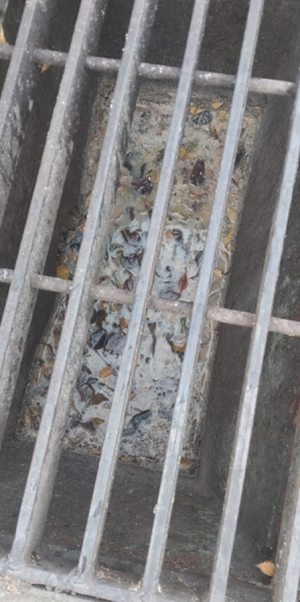We have recently been liaising with a business in Brightwater about their waste disposal habits after our compliance team managed to catch an illegal discharge to the stormwater system red-handed.
Over the last few months, our stormwater maintenance workers observed a sump that contained non-stormwater-related waste. The catchpit developed a very unpleasant odour and contained fatty waste. It had to be cleaned out twice.
When our compliance team followed up with a visit to the site, they caught a person tipping their waste from their business into the sump.
Enforcement action for this incident is being taken – it’s a course of action we don’t like resorting to but if everyone does the right thing, it’s something we won’t have to do.
While the offending party seemed okay with their residue liquids and waste going down the stormwater pipes and out to sea, this is not helpful or healthy for our infrastructure or the environment.
While stormwater runs directly into harbours and the sea without any treatment, we want everyone to do their part in keeping the run-off as clean as we can on its pipeline journey.
As well as the environmental effects, pouring fatty waste and grease down the stormwater drain, kitchen sink, toilet or laundry plughole can potentially clog your drain.
Instead, waste such as cooking oil and grease should be disposed of in regular trash containers. To do so, pour the oil into a sealable container such as an empty coffee can, then place the container in your regular household trash.


